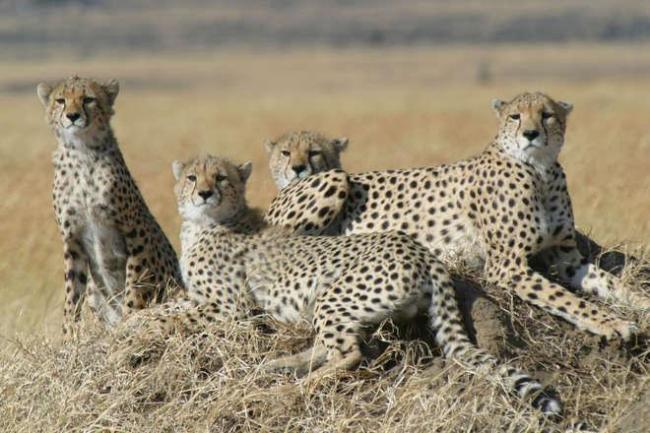
Cheetah, the world's fastest land animal, on the verge of extinction
According to the study, around 7,100 cheetahs are now found in the wild and could soon be lost forever unless urgent, landscape-wide conservation action is taken.
Media reports quoted the journal, Proceedings of the National Academy of Sciences, as saying that cheetahs have been driven out of 91 per cent of their historic range.
The report in its abstract says, "The global population is estimated at ∼7,100 individuals and confined to 9 per cent of its historical distributional range. However, the majority of current range (77 per cent) occurs outside of protected areas (PAs), where the species faces multiple threats.
Key reasons that have resulted in the decline in numbers of cheetahs are hunting, habitat loss, illegal trafficking of animal parts, and the trade in exotic pets, the study said.
The cheetahs once roamed nearly all of Africa and much of Asia, but their population is now confined predominantly to six African countries: Angola, Namibia, Zimbabwe, Botswana, South Africa, and Mozambique, reported the National Geographic (NG) quoting the study.
The cheetah (Acinonyx jubatus) is characterised by a slender body, deep chest, spotted coat, a small rounded head, black tear-like streaks on the face, long thin legs and a long spotted tail.
The speed of a hunting cheetah averages 64 km/h (40 mph) during a sprint; the chase is interspersed with a few short bursts of speed, when the animal can clock 112 km/h (70 mph), according to Wikipedia.
The species is already almost extinct in Asia, with fewer than 50 individuals remaining in one isolated pocket of Iran, said NG.
Due to the species' dramatic decline, the study's authors are calling for the cheetah to be up-listed from Vulnerable to Endangered on the IUCN Red List of Threatened Species, said WCS.
"This study represents the most comprehensive analysis of cheetah status to date," said lead author Dr. Sarah Durant of the Zoological Society of London and WCS. "Given the secretive nature of this elusive cat, it has been difficult to gather hard information on the species, leading to its plight being overlooked. Our findings show that the large space requirements for cheetah, coupled with the complex range of threats faced by the species in the wild, mean that it is likely to be much more vulnerable to extinction than was previously thought."
Almost six decades ago, cheetahs went extinct in India, with the last animal reportedly killed in 1947. The animal was declared extinct in 1952.
Image: Zoological Society of London website
Support Our Journalism
We cannot do without you.. your contribution supports unbiased journalism
IBNS is not driven by any ism- not wokeism, not racism, not skewed secularism, not hyper right-wing or left liberal ideals, nor by any hardline religious beliefs or hyper nationalism. We want to serve you good old objective news, as they are. We do not judge or preach. We let people decide for themselves. We only try to present factual and well-sourced news.







